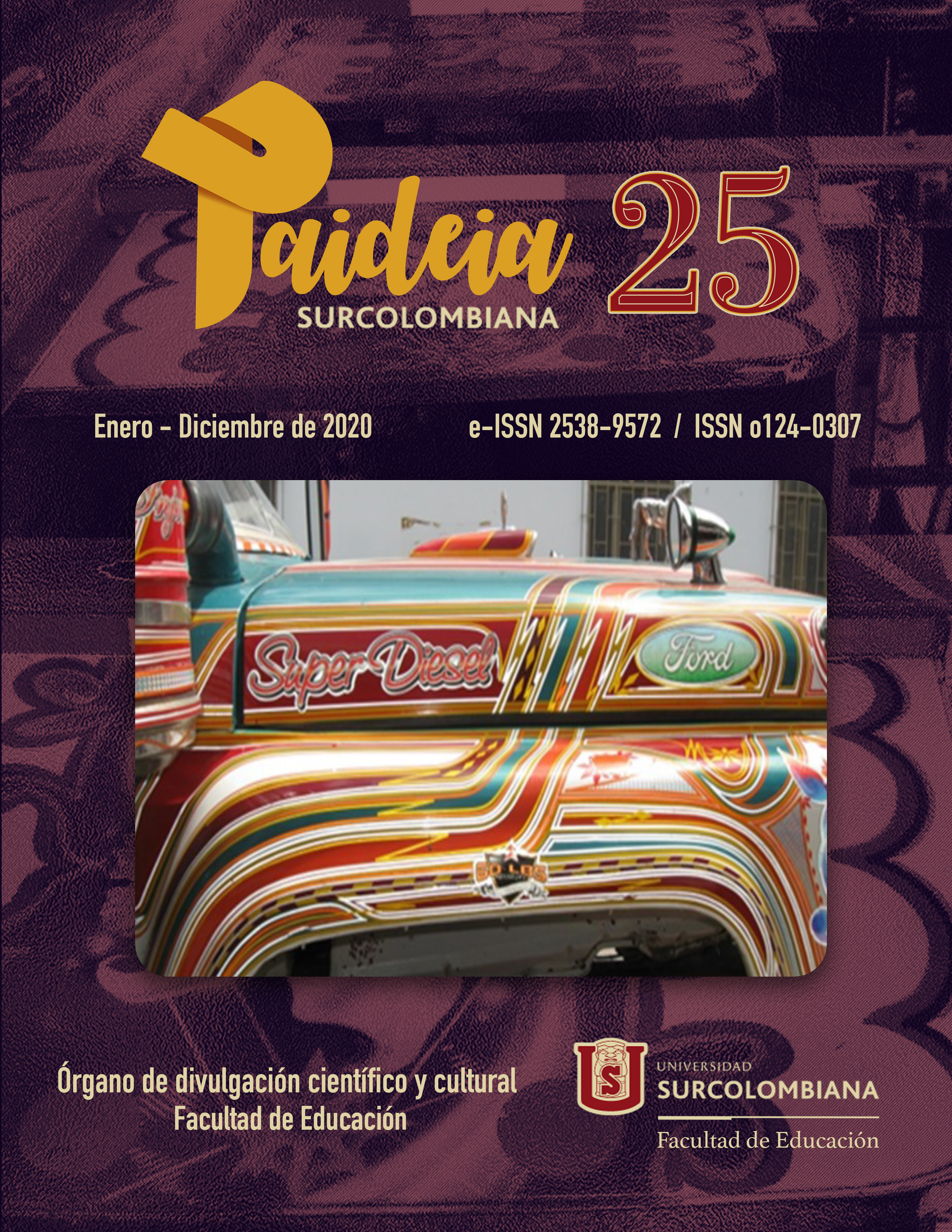Student practices in the space of a public school cafeteria
##plugins.themes.bootstrap3.article.main##
This reflection article arises from a qualitative investigation, oriented from the hermeneutic-interpretive model, which uses the direct observation technique of the Social Sciences. The research is framed within the line "Pedagogical practices" of the Research Group Culture and Narration in Colombia (Cuynaco), attached to the School of Languages of the Industrial University of Santander; Likewise, it receives the methodological support of the Master in Methods and Techniques of Social Research, from the School of History of the same university. The objective of the research is to analyze the students' practices when they use the cafeteria space in a public school in Girón, Santander. To do this, it is proposed, after observation, the categorization process of the information collected, through content analysis. The findings are described in terms of four categories: a) Habitual behaviors of the subjects in the lines to buy products, b) Habitual behaviors of the subjects who do not buy in the cafeteria, but use space, c) Power relations and d) Instability of student attendance in the cafeteria. It is concluded, among other things, that the most common practice of students in the cafeteria space is play, although, by its nature, it is negatively valued by the teachers and managers of the institution.
Downloads
##plugins.themes.bootstrap3.article.details##
Artavia, J. M. (2014). El papel de supervisión del personal docente durante el desarrollo del recreo escolar. Revista educación, 19-36. Recuperado de: http://www.redalyc.org/articulo.oa?id=44031370002.
Burbules, N (1989). Una teoría del poder en educación. Revista Propuesta Educativa, año 1, n.1, p. 13-29.
Buritica, D. (2014). El recreo: ¿Es posible pensarlo pedagógicamente? Un camino hacia la prevención de comportamiento agresivo. Tolima: Universidad del Tolima.
Casas Gómez, M. (1986). La interdicción lingüística-Mecanismos del eufemismo y disfemismo. Cádiz: Servicio de publicaciones de la Universidad de Cádiz.
Campos, G., & Lule, N. (2012). La observación, un método para el estudio de la realidad. Xihmai, 7(13), 45-60. Recuperado de: https://dialnet.unirioja.es/servlet/articulo?codigo=3979972.
Carreter, L. (1998): Diccionario de términos filológicos. Madrid: Gredos.
Chaves, A. (2013). Una mirada a los recreos escolares: El sentir y pensar de los niños y niñas. Revista Electrónica Educare, 17 (1), 67-87. Recuperado de: http://www.redalyc.org/articulo.oa?id=194125789005.
Fontanille, J. (2001). Semiótica del discurso. Lima: Universidad de Lima.
Gold, R. (1958). Roles in sociological field observation. En: Social Forces, 36, 217-213.
Greimas, A. y Courtés, J. (1990). Semiótica. Diccionario razonado de la teoría del lenguaje. Madrid: Gredos.
Herrero, M. (1997). La importancia de la observación en el proceso educativo. En: Revista electrónica interuniversitaria de formación del profesorado, (1), 85.
Jarauta, S. (2017). Una mirada al patio: análisis observacional del recreo en educación infantil. Valladolid: Universidad de Valladolid.
López, P. (2017). El recreo o descanso escolar: ¿Escenario educativo para el reconocimiento del otro? Manizales: Universidad Católica de Manizales.
Mandoki, K. (2006). Prosaica uno. México: Siglo XXI Editores.
Peñaranda, C. (2017). El recreo como espacio de interacción: un estudio observacional. Valladolid: Universidad de Valladolid.
Postic, M. y De Ketele, J. (2000). Observar las situaciones educativas. Madrid: Narcea Ediciones.
Rodríguez, G.; Gil, J. y García, E. (1998). Metodología de la investigación cualitativa. Madrid: Ediciones Aljibe.
Rosenberg, M. J. & Hovland, C. I. (1960). Cognitive, affective, and behavioral components of attitudes. En: Attitude organization and change (pp. 1-14). New Haven, CT: Yale University Press.
Valbuena, É. (2016). El análisis del contenido: de lo manifiesto a lo oculto. En: La investigación en Ciencias Sociales. Bogotá: Universidad Piloto de Colombia.














